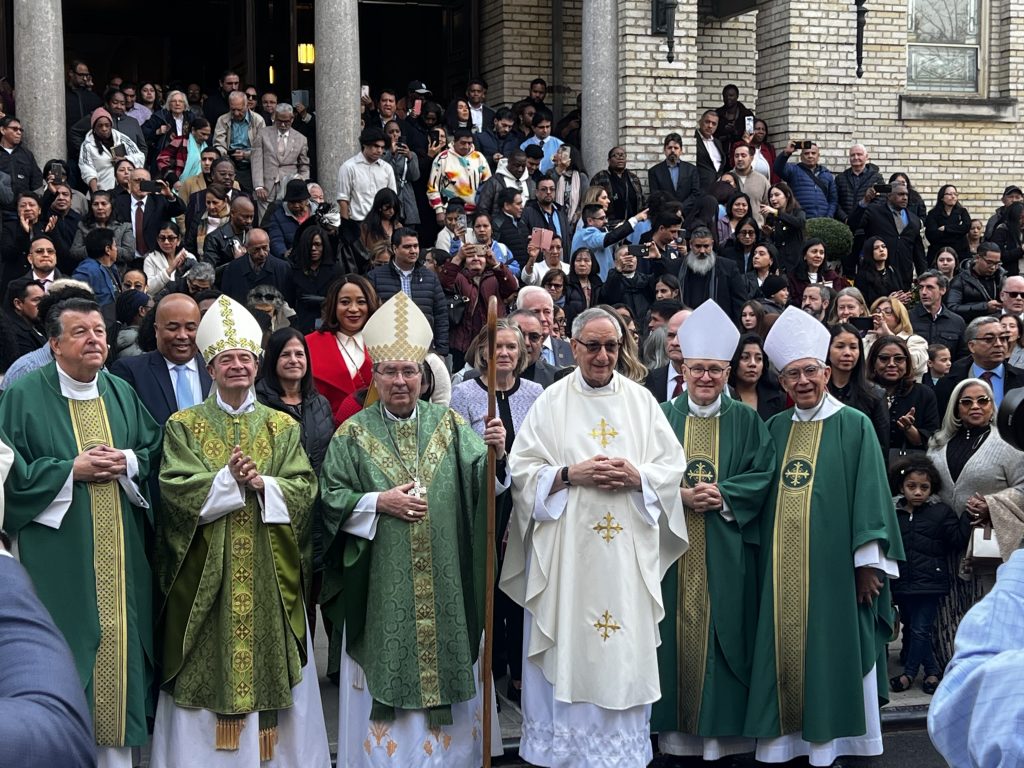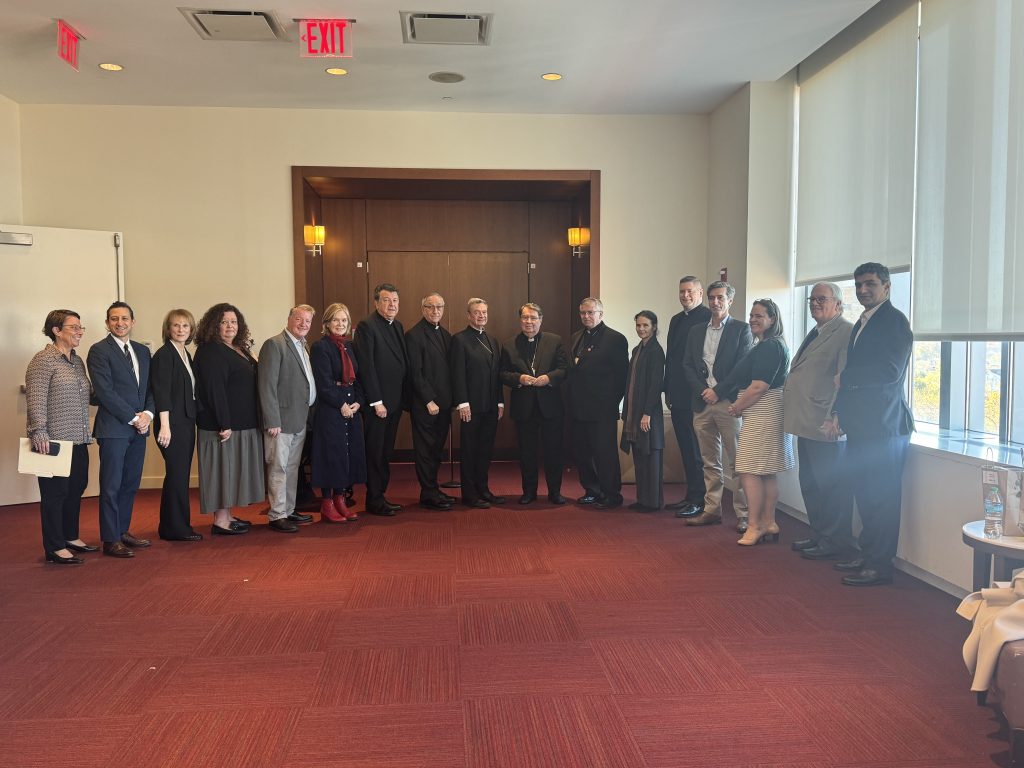
Molly Sword
Last Saturday, St. John’s University celebrated the 125th anniversary of Catholic Charities of Brooklyn/Queens. The event hosted numerous speakers, including Dr. Sabina Alkire, Cardinal Christophe Pierre, professors from St. John’s University and leaders of Catholic Charities.
The speeches explored the realities of poverty on a local and global scale, assessing how it impacts communities worldwide and in our own neighborhoods. Speakers commemorated the achievements of the past 125 years and looked ahead to the future efforts that are needed to combat poverty. A central theme throughout the speeches was that of respect and the importance of treating those in need as equals not as individuals to be pitied.
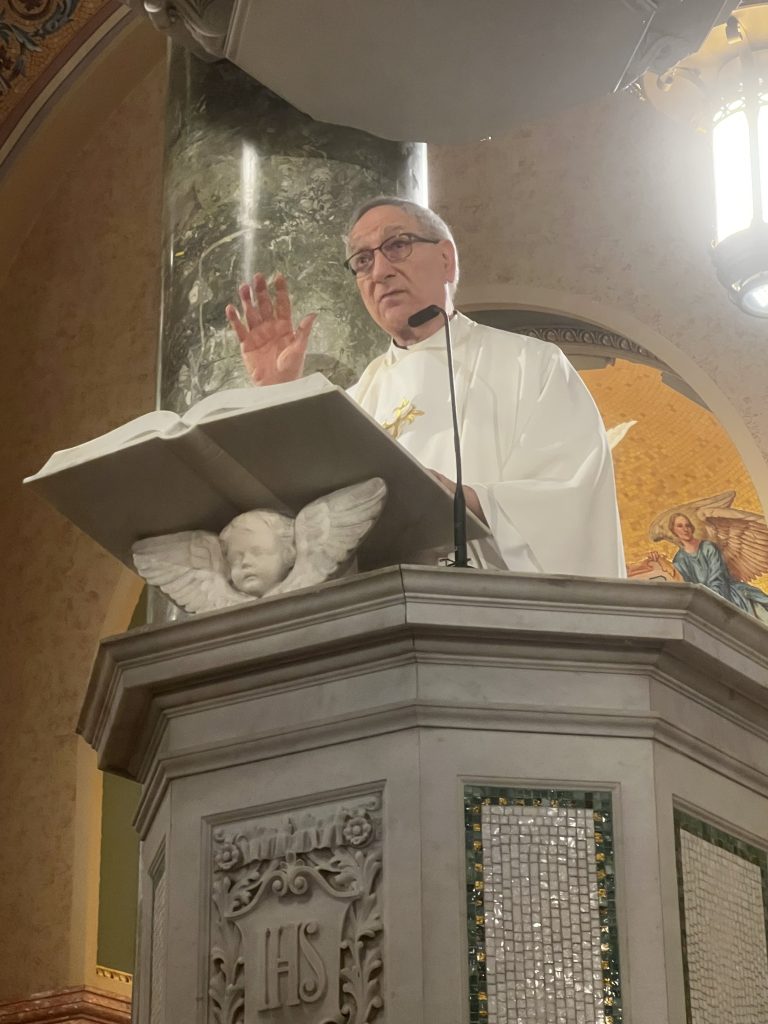
The opening discussion focused on poverty from a global perspective, predominately in the developing world. Dr. Sabrina Alkire, an Oxford University professor introduced her developed multidimensional poverty index (MDI). The MDI is a way of measuring poverty by examining quality of life as opposed to solely focusing on financial value. The 12 main indicators, nutrition and years of schooling, that assess poverty at an individual level, if the person is deprived of a third or more, they are described as MPI poor.
The presentations outlined some shocking statistics such as how there are 1.1 billion people in the developing world who are MPI poor, with half of those being children. The discussion highlighted a shift in understanding poverty not solely as a measure of household income but as a broader reflection of living standards, as is observed through the MPI. While in the past poverty has only been measured by income the MPI allows for a deeper look into the realities of living in poverty. For example, how a family may have a reasonable income, but they achieve this by the costs of their children working instead of completing education, living in unsanitary conditions, or lacking access to essential healthcare.
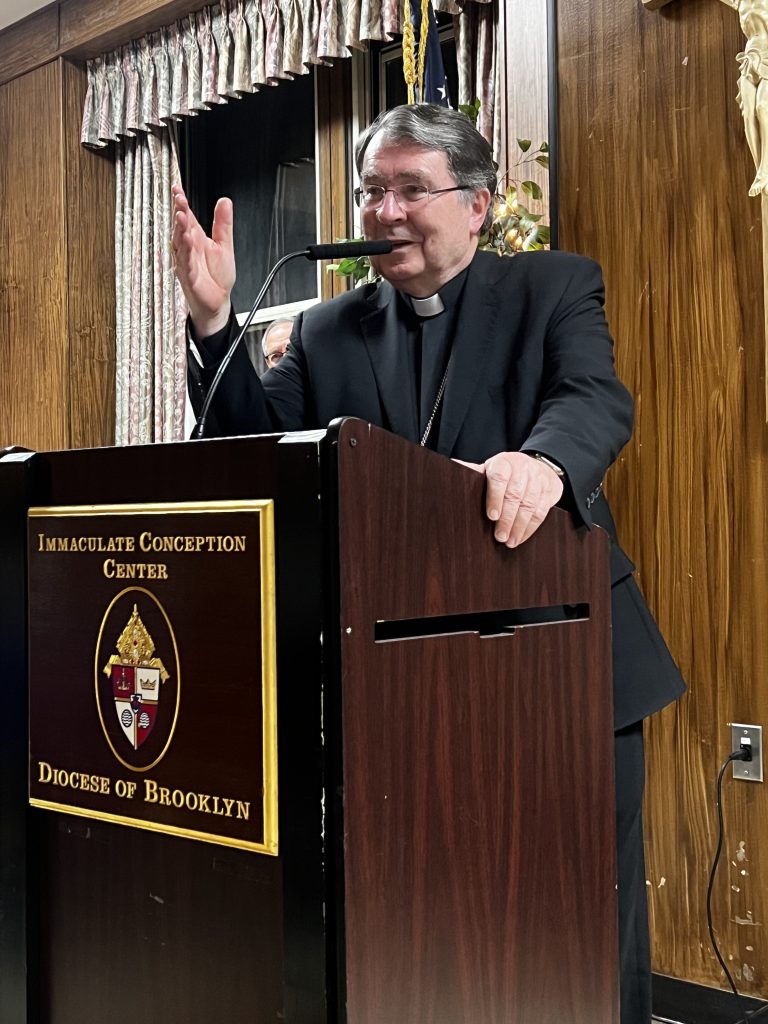
In our own lives, many of us have had to cut back on expenses to save money. For those in the developing world, this is a daily reality. They might sacrifice a stable roof to feed their children or travel an hour to collect clean water to avoid diseases from a local unprotected well. It is these difficult sacrifices that are measured through the MDI, capturing the realities of poverty in all areas of life beyond that of financial income.
So, how does this relate to Brooklyn and Queens? While the insights into global poverty and the MPI were fascinating, it was the afternoon discussion that bridged the gap between poverty on a global scale and a local scale. Tim McManus’ speech observed that it was not only about providing shelter to those in need, as a ‘home is one thing, but a life is another’. Using this principle, Catholic Charities have created community spaces for the elderly to avoid loneliness which is as harmful as ‘smoking fifteen cigarettes a day to the brain’ and organized workshops to help the homeless find jobs and open bank accounts. In the same way, those working for the UN recognize there is more to poverty than observing finances, the people of Brooklyn and Queens understand what is needed to improve one’s quality of life. Recognizing that being poor is more than not having money in the bank.
This theme was continued into a discussion on mental health focusing on the vicious cycle of poverty and mental illness. Explaining that when threatened with poverty one’s mental state deteriorates, meaning they become involved in a cycle of financial worries and subsequent health problems. Whether it was last week or twenty years ago the anxiety of checking a bank statement is one we can all relate to. Now imagine, that worry is a 24/7 reality. This perspective allows us to understand why mental health support is crucial in combating poverty throughout New York.
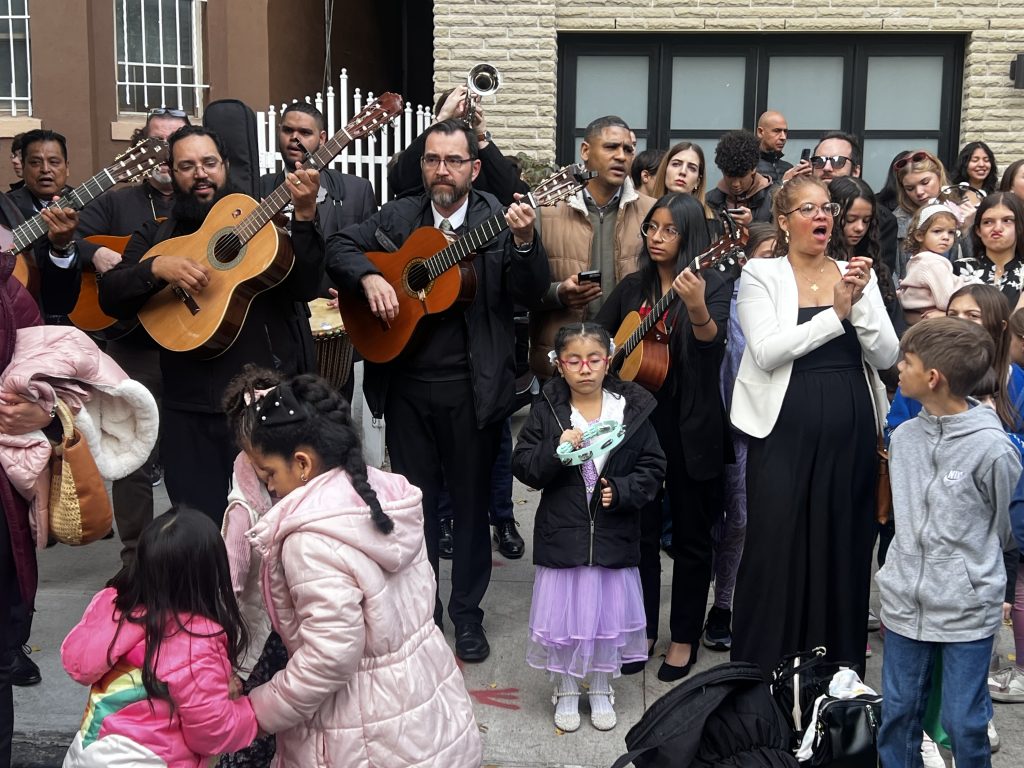
Another presentation on food pantries revealed the harsh reality that poverty can happen to anyone. Following the Covid-19 pandemic the average number of people using food pantries ‘went from 25 to 350 people’. These were hardworking individuals such as Uber drivers and restaurant workers who found themselves without a stable income and queuing alongside their families and young children for food. It was the community that came together to help one another, and they did this out of mutual respect and support.
Becoming poor does not make a person deserving of your pity from your privileged position but deserving of your support from a foundation of equal humanity. This was reiterated through Cardinal Christophe Pierre’s speech reflecting how we are all the ‘ children of God’ and in this instance ‘equals under God’. He stressed the importance of approaching charitable acts with respect, reminding us not to look upon others as lesser but as complete equals. Understanding that the people we help today may be the people who help us tomorrow.
The day commemorated the work of Catholic Charities over the last 125 years who have provided food, housing, health care and a multitude of support to the community. The predominant theme throughout was to remember how we are all equals under God.
Therefore, any support we provide to those in need both in the global and local sphere should come from a place of respect for others as equals, not pity for someone we perceive as lesser.
